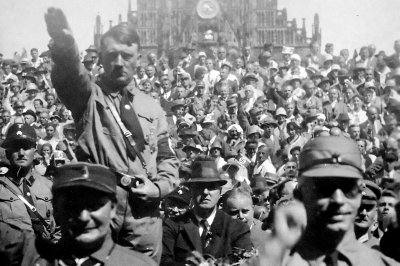Topic: Jack Kerouac
Jean-Louis "Jack" Kerouac (pronounced /ˈkɛruːæk, ˈkɛrəwæk/; March 12, 1922 – October 21, 1969) was an American novelist and poet. Alongside William S. Burroughs and Allen Ginsberg, he is considered a pioneer of the Beat Generation, and a literary iconoclast. Kerouac is held as an important writer both for his spontaneous style and for his content which consistently dealt with such topics as jazz, promiscuity, Buddhism, drugs, poverty, and travel. His writings have inspired several prominent writers, including Hunter S. Thompson, Tom Robbins, Thomas Pynchon, Lester Bangs, Will Clarke, Richard Brautigan, Ken Kesey, Haruki Murakami, Tom Waits, Bob Dylan, and writers of the New Journalism. His works were sometimes shunned as "slapdash", "grossly sentimental", and "immoral". Kerouac did manage to acquire underground celebrity status and was, for a time, labeled as a progenitor of the Hippie movement. Disenchanted with mainstream America and never having gotten over the death of his older brother when he was four years old, Kerouac lost his struggle with alcoholism and died aged 47 in 1969. Since his death, and thanks in large part to the efforts of editor Ann Charters, Kerouac's literary prestige has steadily grown over the years, with several previously unpublished works surfacing, and all of his books being in print today, among them: On the Road, The Dharma Bums, Mexico City Blues, The Subterraneans, Desolation Angels, Visions of Cody and Big Sur.
Jack Kerouac was born in Lowell, Massachusetts, to French-Canadian parents, Léo-Alcide Kéroack and Gabrielle-Ange Lévesque, natives of the province of Quebec, Canada. There is some confusion surrounding his original name partly due to variations on the spelling of Kerouac, and partly because of Kerouac's own promotion of his name as Jean-Louis Lebris de Kerouac. His reason for doing so seems to be linked to an old family legend that the Kerouacs had descended from Baron Francois Louis Alexandre Lebris de Kerouac. Kerouac's baptism certificate lists his name simply as Jean Louis Kirouac. Kerouac often gave conflicting stories about his family history and the origins of his surname. He sometimes claimed he was descended from a Breton nobleman, granted land after the Battle of Quebec, whose sons all married Native Americans. Research has shown that Kerouac's roots were indeed in Brittany, and he was descended from a middle-class merchant colonist, François-Urbain Le Bihan, Sieur de Kervoac, whose sons married French Canadians.. Kerouac's own father had been born to a family of potato farmers in the village of Saint-Hubert-de-Rivière-du-Loup. He also had various stories on the etymology of his surname, usually tracing it back to Irish, Breton, or other Celtic roots. In one interview he claimed it was the name of a dead Celtic language and in another said it was from the Irish for "language of the water" and related to Kerwick. Kerouac, derived from Kervoach, is the name of one hamlet situated in Brittany in Lanmeur, near Morlaix. Deleuze and Guattari cited Kerouac as a literary example of an oscillation from revolutionary left-wing expressions to fascist expressions; they said he "took a revolutionary 'flight'" with his on the road journeys, but later finds himself in the "old fascist dream" of searching for "his Breton ancestors of the superior race".
Despite the future elaborations, around the house during his childhood, Kerouac was referred to as Ti Jean or little John. Kerouac spoke the French-Canadian dialect called Joual until he learned English at the age of six. He was a serious child who was devoted to his mother who played an important, perhaps unhealthy, role in his life. She was deeply religious, instilling this into her younger son; this can be seen throughout his works. Kerouac would later go on to say that his mother was the only woman he ever loved. When he was four, he was profoundly affected by the death of his nine-year-old brother, Gérard, from rheumatic fever, an event later described in his novel Visions of Gerard. Some of Kerouac's poetry was written in French, and in letters written to friend Allen Ginsberg towards the end of his life, he expressed his desire to speak his parents' native tongue again. Recently, it was discovered that Kerouac first started writing On the Road in French, a language in which he also wrote two unpublished novels. The writings are in dialectal Quebec French.
It uses material from the Wikipedia article "Jack Kerouac."








